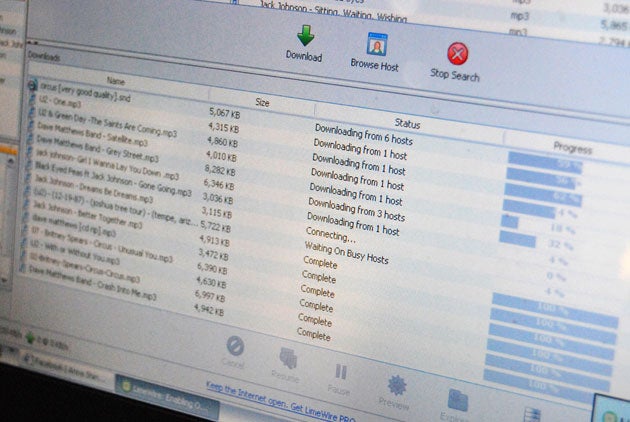France's lower house of parliament approved a pioneering bill yesterday, allowing authorities to cut off internet access to people who download illegally, a measure that entertainment companies hope will be a powerful weapon against piracy.
Critics, meanwhile, complain the bill threatens civil liberties, and questions remain about exactly how it will be enforced.
The bill has garnered attention beyond France, both from music and film industries struggling to keep up official revenue and from privacy advocates who worry about government intrusion.
The Culture Ministry has estimated that 1,000 French internet users a day could be taken offline under the bill.
Pirates who ignore email warnings and a registered letter could see their internet connections cut for up to a year, and they could also face up to €300,000 (£266,900) in fines or jail time.
Even parents whose children download illegally could be targeted for neglecting to police their online activities - after warnings, the family's internet service could be shut down for a month, and they could be slapped with a €3,750 (£3,336) fine.
An original, more muscular version of the bill was shot down earlier this year as unconstitutional. The Senate approved a compromise version in July, and the National Assembly followed suit with a 285-225 vote.
The bill must clear at least one more hurdle to become law, gaining approval from a small committee of lawmakers tasked with harmonising the two versions.
President Nicolas Sarkozy, the husband of model-turned-singer Carla Bruni-Sarkozy and friend to powerful French media figures, supports the bill.
Culture Minister Frederic Mitterrand applauded lawmakers, saying, "Artists will remember that we at last had the courage to break with the laissez-faire approach and protect their rights from people who want to turn the net into their libertarian utopia."
David El Sayegh, general manager of France's National Union of Phonographic Publishing, also praised the effort, saying, "It's extremely urgent to have regulation on the internet to make users responsible".
But opposition Socialists and several members of Sarkozy's conservative party are against it, largely because of the powers it grants a new agency, called Hadopi, that would sanction those who illegally download copyrighted material.
Efforts to pass the bill have been tortuous. It was rejected in April, then adopted in May, then rejected by the Constitutional Council in June because it would have allowed the agency to cut off internet connections of repeat offenders. The version voted on yesterday leaves it to a judge to order internet connections cut.
Socialist lawmaker Bruno Le Roux called the back-and-forth an "endless soap opera" that has become "grotesque."
"This project is totally unenforceable today," he said, echoing the concerns of some internet experts.
Exact details about enforcement were still being worked out. internet subscribers would be asked to install special software to enable authorities to track down and identify those suspected of illegal downloads, but sceptics say such programs are not ready to be rolled out.
Opponents also say the legislation misses the point by targeting downloads rather than illegal forms of "streaming" - an increasingly popular approach where music and videos are played over the internet, rather than downloaded and saved onto a user's computer.

Join our commenting forum
Join thought-provoking conversations, follow other Independent readers and see their replies
Comments